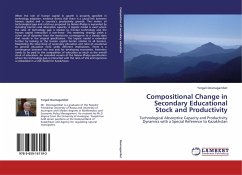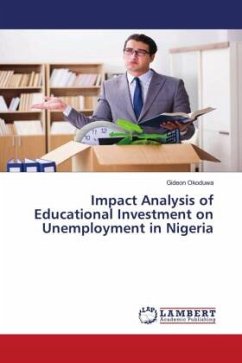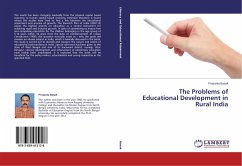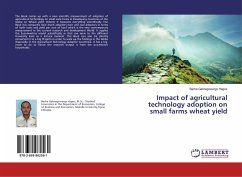
Compositional Change in Secondary Educational Stock and Productivity
Technological Absorptive Capacity and Productivity Dynamics with a Special Reference to Kazakhstan
Versandkostenfrei!
Versandfertig in 6-10 Tagen
32,99 €
inkl. MwSt.

PAYBACK Punkte
16 °P sammeln!
When the role of human capital in gowth is properly specified in technology adoption, evidence shows that there is a causal link between human capital and a country's productivity growth. The notion of technological gap and catch-up proposed by Nelson-Phelps is expanded by including barriers and absorptive capacity. A logistic model is used where the ratio of technology gap is relative to frontier technology and the human capital interaction is non-linear. This modeling strategy yields a richer set of dynamics than the monotonic convergence to a steady state that results in the original specif...
When the role of human capital in gowth is properly specified in technology adoption, evidence shows that there is a causal link between human capital and a country's productivity growth. The notion of technological gap and catch-up proposed by Nelson-Phelps is expanded by including barriers and absorptive capacity. A logistic model is used where the ratio of technology gap is relative to frontier technology and the human capital interaction is non-linear. This modeling strategy yields a richer set of dynamics than the monotonic convergence to a steady state that results in the original specification. The logistic model is extended further by looking at the human capital barrier relative to all barriers. Maximizing the total stock of secondary education and ratio of vocational to general education (V/G) yields different implications. There is a convergence between the two only for developing economies. Attention needs to be paid to the composition of education as much as the overall stock of education. An extended version of the Nelson-Phelps specification where the technology gap is interacted with the ratio of V/G and openness is embedded in a CGE model for Kazakhstan.












